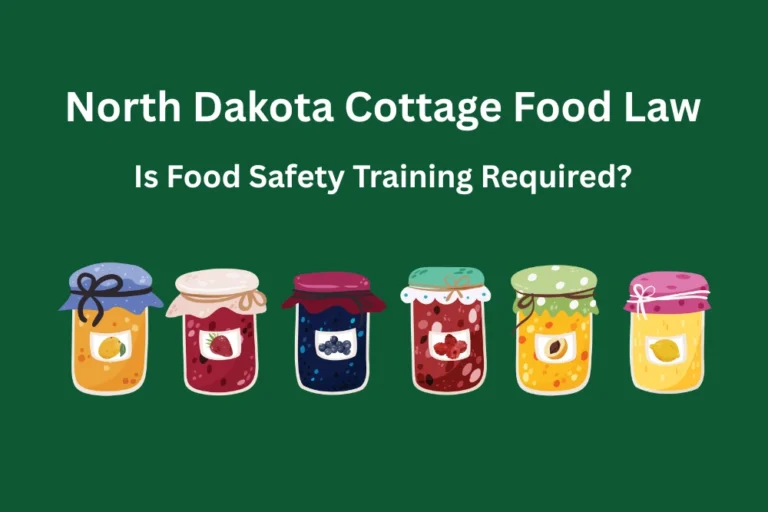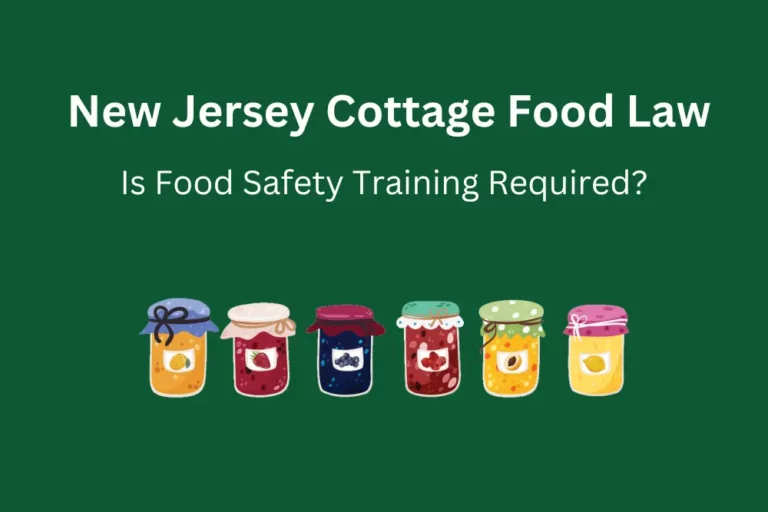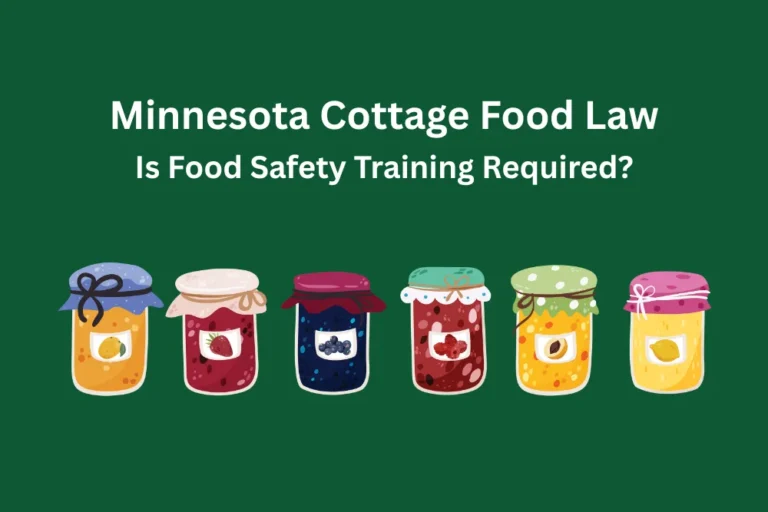Nevada Cottage Food Law: Do You Need Food Safety Training?
Article Summary
Selling homemade food in Nevada? The cottage food law doesn’t require food handler training, but getting your card can still give your business an edge. This quick video explains why it’s worth it, what you’re allowed to sell, and how to get your food handler card online with FoodSafePal.
Selling homemade food is a great way to share your products and earn extra income, but every state has its own rules to follow.
Each state defines its cottage food or home processing laws — what foods you can make, where and how you can sell them, and whether you need food safety training.
This article explains Nevada’s cottage food law and whether food safety training is required to sell homemade food.
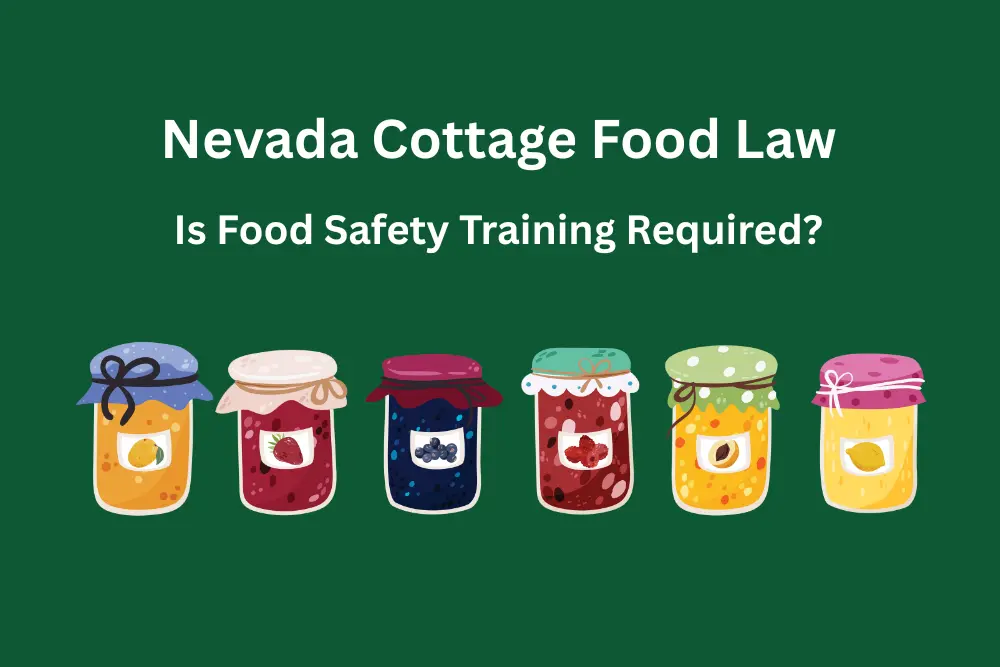
Nevada cottage food law
Nevada’s cottage food law allows individuals to make and sell certain low-risk foods from their home kitchen without needing a food establishment license.
You can make, package, and label approved foods in your home kitchen and sell them directly to consumers, such as from your home, at farmers markets, craft fairs, or community events.
Sales must be made in person to the end consumer. Online sales, phone orders, or shipping are not allowed, and your products can’t be sold to restaurants, grocery stores, or anyone who plans to resell them.
Before selling, you must register your cottage food business with your local health department.
If you live in Clark County, registration is handled through the Southern Nevada Health District.
Nevada plans to move cottage food oversight to the Department of Agriculture in 2027, but until then, the current process through your local health district remains in place.
Unlike licensed food establishments, your kitchen will not be routinely inspected unless there’s a complaint or a food safety issue.
Nevada allows a variety of shelf-stable, non-perishable foods that don’t require refrigeration for safety. Examples include:
- Candies and fudge
- Nuts and nut mixes
- Dried fruits
- Dry herbs, seasonings, and spice blends
- Granola, trail mix, and cereals
- Popcorn and popcorn balls
- Jams, jellies, preserves, and flavored vinegars
- Baked goods such as breads, cookies, muffins, and cakes without cream or custard fillings
Foods that require refrigeration to stay safe present a higher food safety risk and cannot be sold under Nevada’s cottage food law. Examples of prohibited foods include:
- Cheesecakes, cream pies, or other cream-filled baked goods
- Meats, fish, or poultry
- Dairy products such as milk, butter, or cheese
- Salsas, sauces, or pickled foods
- Fresh fruits or vegetables
- Beverages or alcohol-based foods
Foods like pickled vegetables, salsas, or other acidified foods don’t fall under Nevada’s cottage food law. These products can only be made and sold through a separate program known as a craft food operation, which requires registration, food safety training, and testing to make sure the foods are safely processed.
Summary
Nevada’s cottage food law allows you to make and sell specific shelf-stable foods from your home kitchen without a food establishment license, as long as you register with your local health department and sell directly to consumers in person.
Do you need food safety training to sell homemade food in Nevada?
Nevada does not require food safety training or a Nevada food handler card to sell homemade food.
However, taking a food safety course is still a smart choice. A food handler card shows customers that you understand how to handle food safely and care about their health, which can build trust and help you stand out.
Some farmers markets, events, or insurance companies may also prefer or require vendors to have food safety training.
FoodSafePal’s nationally accredited food handler course is 100% online and takes about 90 minutes to complete. Once you pass, you’ll get instant digital access to your official food handler card and certificate, plus the option to have a printed version mailed to you.
Your card is valid for three years, and you can renew it anytime by retaking the course and test.
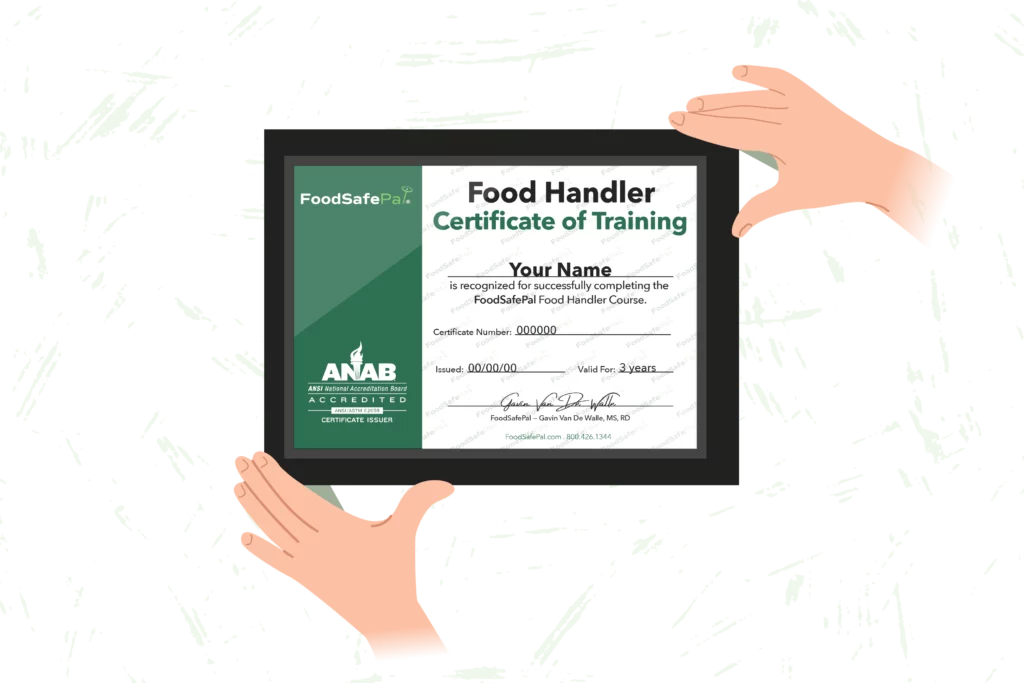
Get Your Nevada Food Handlers Card
Instant certificate. 100% online in about 90 minutes.
Summary
Food safety training isn’t required to sell homemade food in Nevada, but completing a food handler course can help you build customer trust, meet event or insurance requirements, and show you take food safety seriously.
Labeling requirements
Every product you sell must be prepackaged to protect it from contamination and labeled according to federal standards.
You must follow the Food and Drug Administration’s labeling rules by including:
- The product’s name
- Your name and address (or business name if different)
- A list of ingredients in descending order by weight
- Allergen information for any major allergens such as milk, eggs, wheat, soy, peanuts, tree nuts, fish, or shellfish
- The net weight or volume of the product
You must also include this exact disclaimer: “MADE IN A COTTAGE FOOD OPERATION THAT IS NOT SUBJECT TO GOVERNMENT FOOD SAFETY INSPECTION.”

Summary
All homemade foods in Nevada must be packaged and labeled with key information, including the product name, your business information, ingredients by weight, allergen details, net weight, and the required cottage food statement.
The bottom line
Nevada allows residents to make and sell certain shelf-stable foods from their home kitchen without needing a permit or inspection, as long as they register with their local health department and follow labeling requirements.
Food safety training isn’t required, but earning an food handlers card from an accredited organization like FoodSafePal can help you operate more confidently, improve customer trust, and prepare you for future business growth.

Get Your Nevada Food Handlers Card
Instant certificate. 100% online in about 90 minutes.

